Ukrainians collide in new survey with war optimism and European skepticism
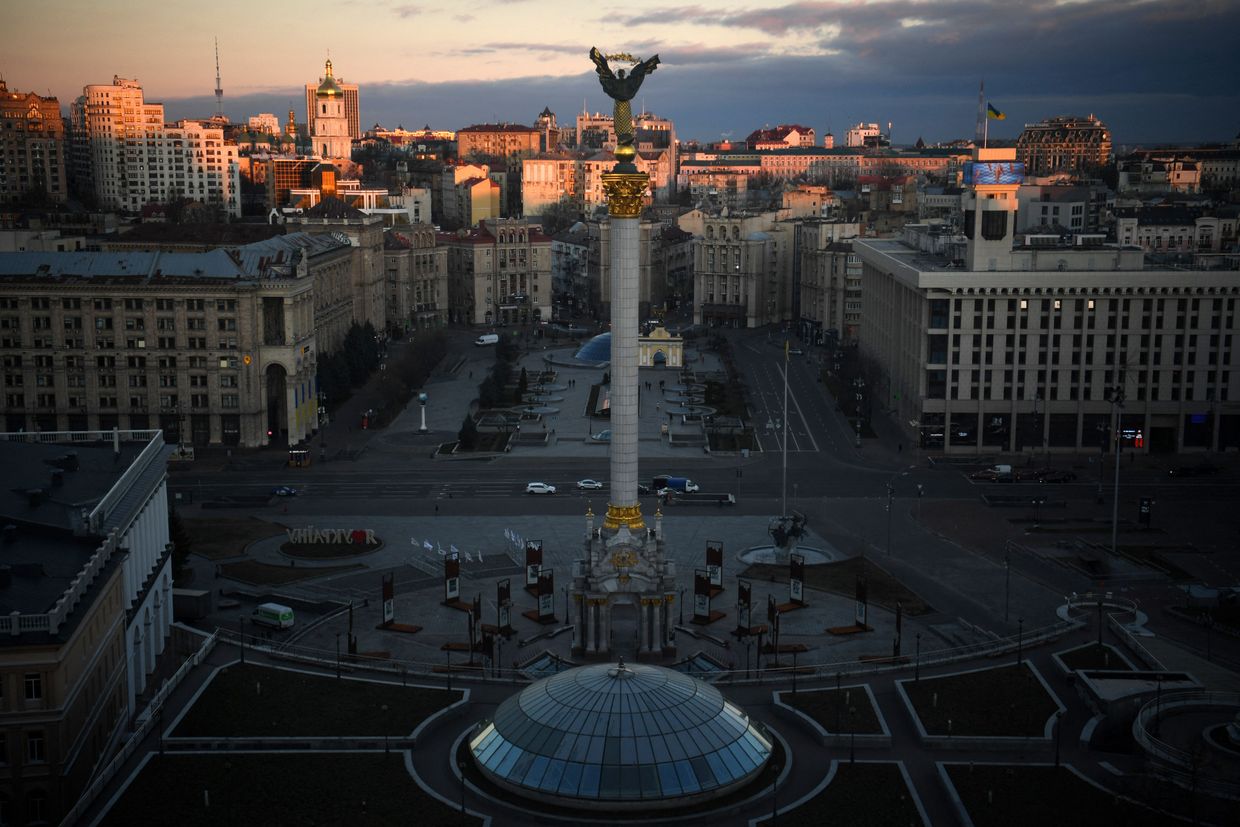
A new opinion poll reveals a growing gap between Ukrainians’ hopes for a battlefield victory against Russia and Europe’s realization that the war can only be ended through a negotiated solution.
The poll, conducted by the European Council on Foreign Relations (ECFR), found that while support for Ukraine and willingness to supply arms to Kyiv remain high, the diverging views could have profound political implications in the months and years to come.
“The results are reassuring at first glance,” the report says. It goes on to say: “Support for the war has remained stable in the European countries studied – and morale is strong in Ukraine.”
But beneath the surface, the poll reveals a deep divide between European and Ukrainian views on how the war will end – and on the purpose of European support.
“In short, Ukrainians want weapons to win, while most Europeans send weapons in the hope that this will lead to an acceptable solution to the conflict.”
Although Russia has only achieved small, hard-won successes in eastern Ukraine and has thwarted a Kremlin offensive in Kharkiv Oblast, it is still a long way from reaching a negotiated solution.
Russian President Vladimir Putin said on June 14 that Moscow would only initiate a ceasefire and enter into peace talks if Ukraine withdrew from the four Ukrainian regions claimed – but not fully controlled – by the Kremlin.
The demands also included the recognition of Crimea and Sevastopol as “subjects of the Russian Federation”.
The conditions were immediately rejected from Kiev, which insists that the start of peace negotiations requires a complete withdrawal of Russian troops from all Ukrainian territory.
Only on July 2, President Volodymyr Zelensky rejected the proposal by Hungarian Prime Minister Viktor Orbán to consider a ceasefire in order to “speed up peace talks”.
The ECFR survey, entitled “The Meaning of Sovereignty: Ukrainian and European Views on Russia’s War on Ukraine,” was attended by respondents in 15 countries – Bulgaria, the Czech Republic, Estonia, France, Germany, Great Britain, Greece, Italy, Poland, Portugal, the Netherlands, Spain, Sweden, Switzerland and Ukraine.
Across Europe, the public is skeptical that Ukraine can win the war. In all countries surveyed, except Estonia, a majority believe that the war can only end with a negotiated solution.
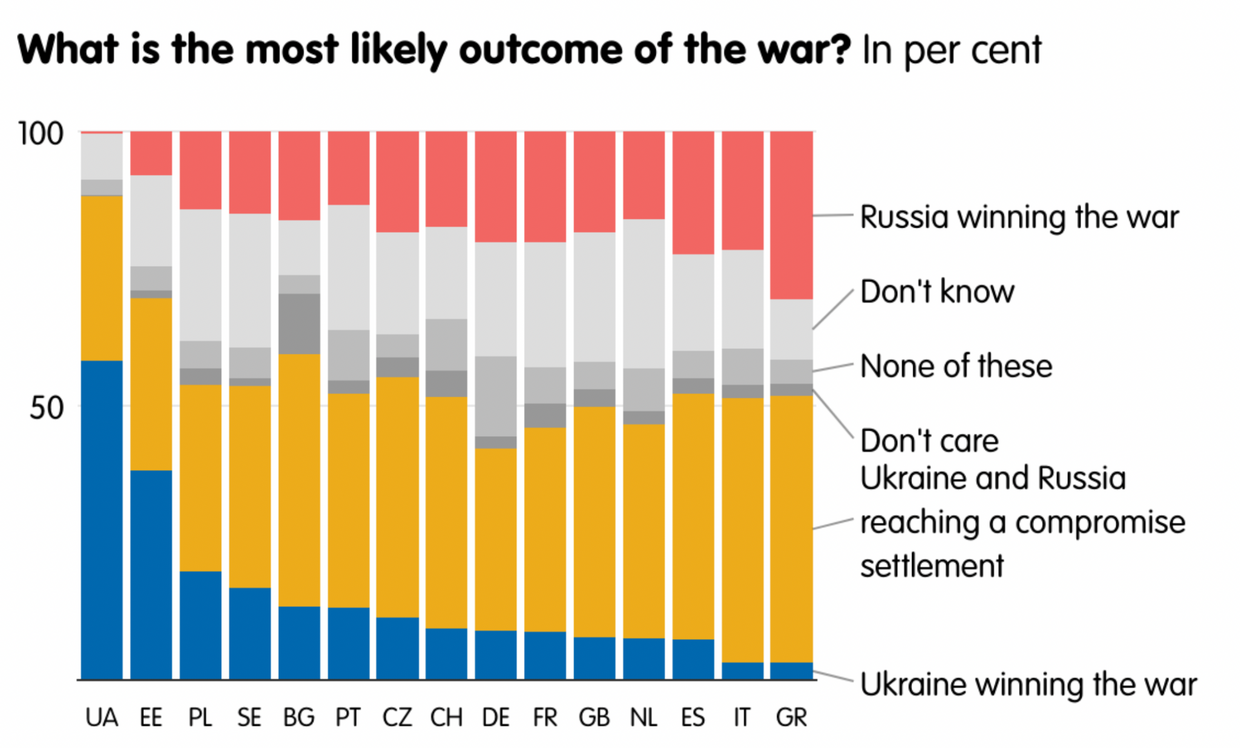
Even when asked to imagine a scenario in which arms supplies to Ukraine increase dramatically, eleven of the 15 countries surveyed still consider an agreement to be the most likely outcome.
Nevertheless, there is strong support across Europe for increasing Western arms supplies to Kyiv, particularly in Sweden, Poland, the United Kingdom, the Netherlands and Portugal.
But in Bulgaria, Greece and Italy a majority of respondents consider it a “bad idea”.
A majority of Ukrainians continue to believe that they can win the war against Russia. Only 1 percent believe that it will end with a victory for the Kremlin.
Ukrainians have great confidence in the reliability of their Western allies, with Britain leading the pack among those who consider it “very” or “largely” reliable.
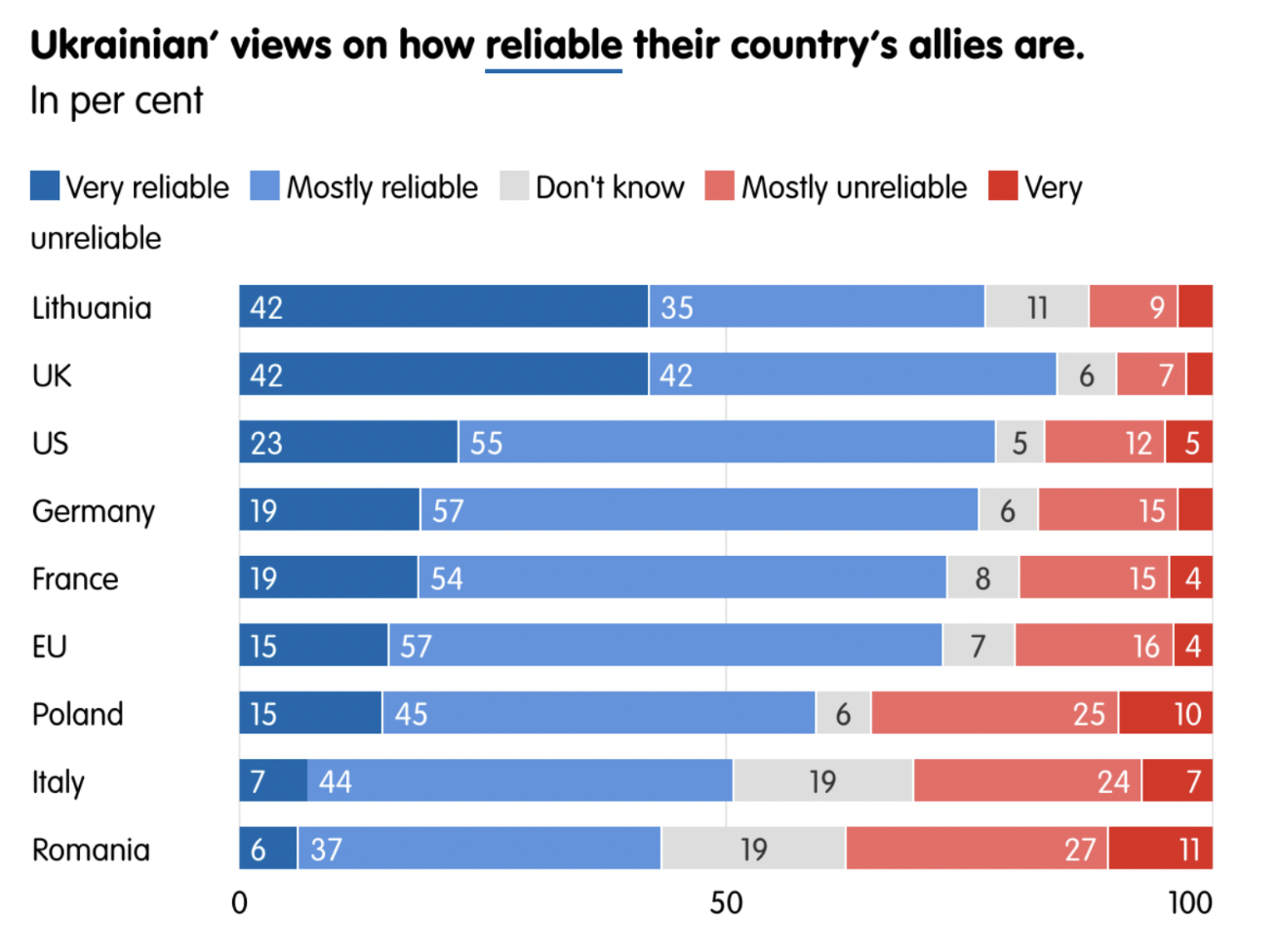
While there is broad support among Europeans for sending weapons, the majority of all countries surveyed reject the idea of sending Western troops to Ukraine – even in those countries most in favor of the war.
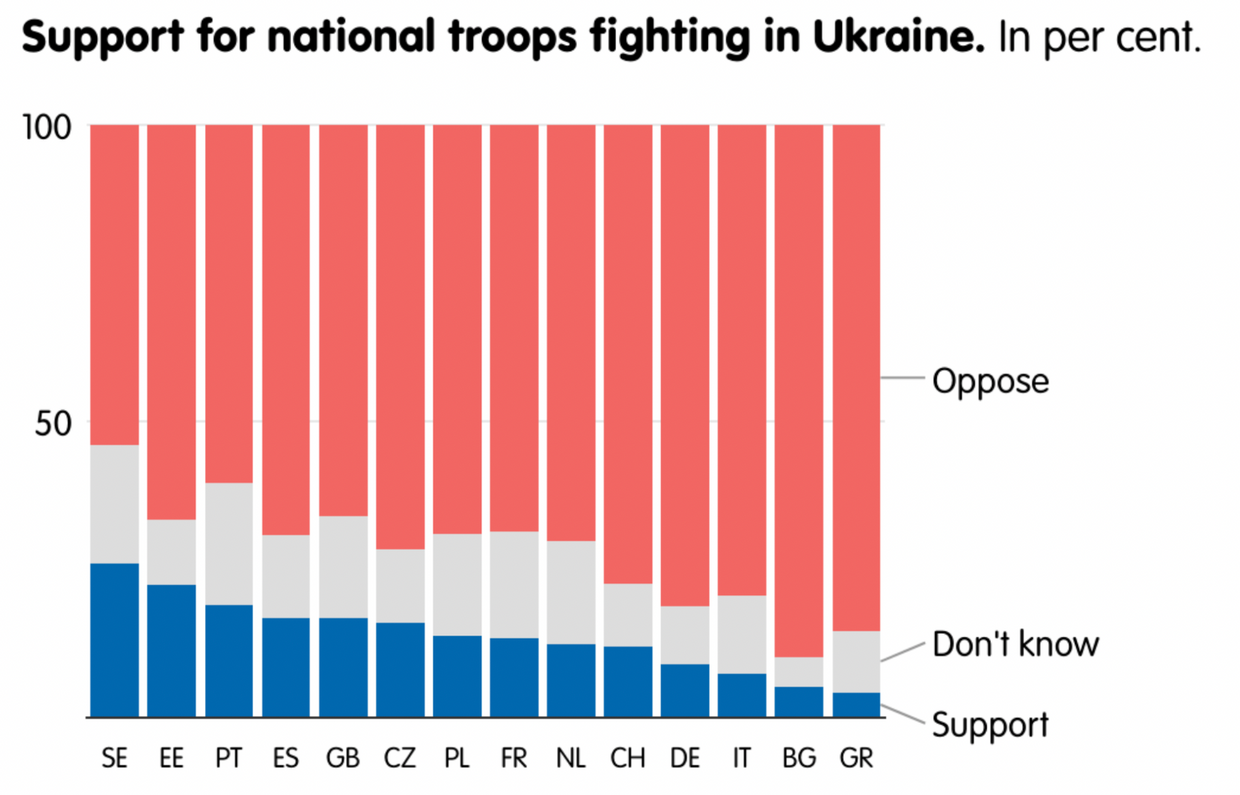
The comprehensive survey also revealed:
- A majority of Ukrainians (64%) believe that joining NATO and joining the EU are equally important.
- 47 percent of Ukrainians fear that the United States could negotiate a peace treaty with Russia without involving Kyiv.
- 71 percent of Ukrainians believe that Ukraine should “definitely not” or “probably” give up territory in exchange for NATO membership.
“Our new poll suggests that one of the biggest challenges for Western leaders will be reconciling the conflicting positions between Europeans and Ukrainians on how to end the war,” said Mark Leonard, co-author and founding director of the ECFR.
“While both groups recognize that continued military support to Ukraine is necessary to help it repel Russian aggression, there is a deep divide over what constitutes victory and what the real purpose of European support is.
“While the Europeans overwhelmingly see a negotiated solution as the most likely outcome, the Ukrainians are not yet ready to accept territorial compromises for NATO accession. Nor are they prepared to embrace the idea of ’Finlandization’, in which they would keep their territory but give up their EU and NATO ambitions.”
You can read the full report here.
Less than half of Ukrainians consider society to be united, according to a survey
The main reasons for disunity in society are corruption (16%), language problems (14%) and lack of trust in authorities (13%).
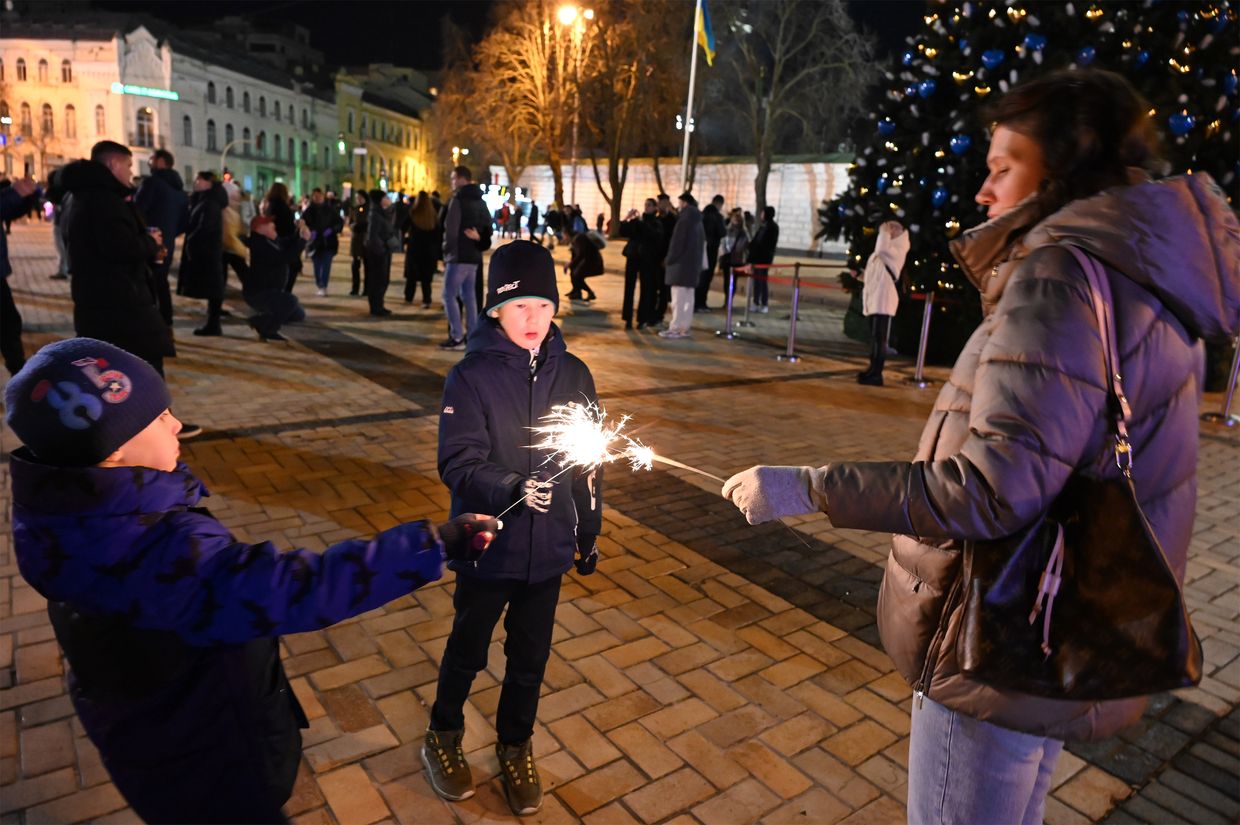



/cloudfront-us-east-1.images.arcpublishing.com/pmn/TD5MCS2Z5FGWFGX3H6PS3E3GK4.jpg)